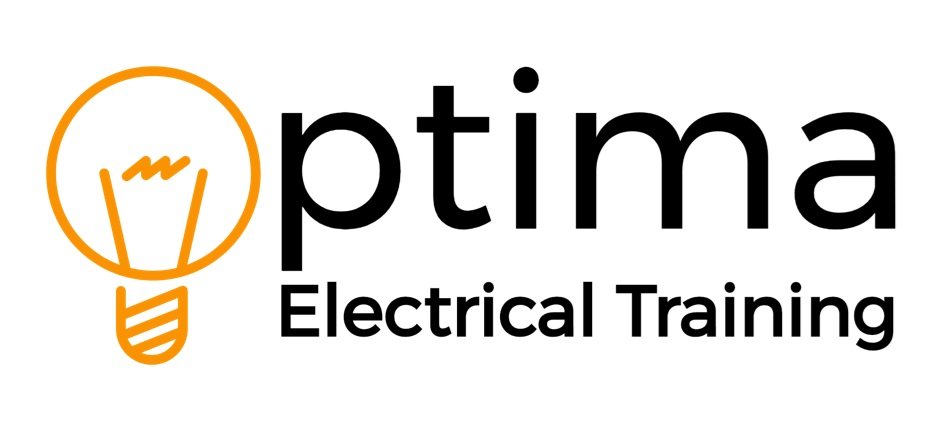Quality Assurance Policy
Internal Quality Assurance (IQA) is the process of ensuring that training delivery and assessment
practice is monitored in order to ensure that they meet or exceed national standards. At our training centre we are attempting to operate a robust internal quality assurance system, to maintain the consistency and accuracy of assessments and ensure continual development of our working practices, resources, processes and procedures. This supports our aim to encourage and enable knowledge gathering and realise achievement through quality delivery.
We regularly monitor all of our courses and frequently review all training delivery taking place in the centre and Internal Quality Assurance is carried out on an ongoing basis to ensure consistent assessment standards are maintained. This will be overseen by the Quality Assurance Manager. Student exams, portfolios and practical assessments are included in the Internal Quality Assessment routines.
1. Purpose
To meet and exceed the requirements placed upon us by;
· Awarding bodies;
· Our students;
· Our employment partners.
To support all employees to have excellent working practices, through provision of formative training, supervision, observation and sampling processes. To support and develop tutors in their working practices by affording them the opportunity to receive critically supportive comment on;
· The assessment decisions reached on portfolio evidence
· Training/teaching techniques applied
To ensure provision of secure, hospitable, inspiring and engaging settings for learners.
To provide a continuous check on the consistency and quality of delivery and the consistency, quality and fairness of marking, grading and overall assessment of learner evidence.
To ensure that valid, consistent assessment decisions are reached and external requirements are fully met.
To develop and maintain internal and external associations based on quality, belief and integrity and so to encourage and uphold quality in all that we do.
2. Scope
All employees, tutors and students; Internal Quality Assurance of any work practices, documents and evidence that impact on the delivery, examination and assessment of qualifications and training supplied by the Training Centre.
3. Roles and Responsibilities
Our quality assurance manager is responsible for ensuring that;
· The quality requirements of our accrediting awarding bodies and employment partners are met in the delivery and assessment of qualifications;
· IQA policies and procedures are sufficient, regularly reviewed and known, understood and implemented by all;
· All employees and tutors involved in the processes of delivery of services are appropriately trained and qualified through provision of rigorous recruitment processes, induction training and continual development;
· All employees and tutors involved in IQA processes are appropriately trained and qualified through provision of rigorous recruitment processes, induction training and continual development.
Employees and tutors involved in induction of students are responsible for ensuring:
· Checking the identity of the student;
· All paperwork is fully and accurately completed;
· That students are inducted into their chosen programme in a way that meets their needs.
Tutors are responsible for ensuring that:
· Candidates/learners are aware of;
o The different types of evidence that they can collect to prove competence of knowledge and working practices;
o Their responsibilities in the collection, authentication and presentation of evidence;
· The candidates/learners are fully supported throughout the term of their qualification. This should include:
o Assessing the persons learning style and discussing their preferred ways of learning
o Effective management evidence gathering, assessment and attainment
o Agreeing and recording assessment and visit plans for each person
o Completing regular reviews with the person and their employer to review progress and agree new targets
o Providing the person with prompt, accurate, formative and summative feedback.
o Demonstration of anti‐discriminatory practice and equal opportunities
o Maintenance of confidentiality and compliance with the Data Protection Act.
They observe learners’ performance through formative assessment and/or in simulated situations, and/or conduct other forms of assessment in accordance with the qualification and unit standards and requirements of the QCF and the accrediting university.
Such as;
•ensuring validity, authenticity, currency and sufficiency of evidence
• maintaining appropriate, accurate and verifiable records0
• confirming that learners have demonstrated competence/knowledge and have
completed the required documentation
· As required they make themselves available and organise for their students to be available
to the Clinical Director and external Quality Assurers from our accrediting university and
other awarding bodies.
4. Internal Quality Assurers
Internal Quality assurers are responsible for:
· Ensuring that they lead, advise and support the tutors allocated to them through;
· Ensuring adherence to the principles of assessment and guidance provided by the centre;
· Providing guidance on the interpretation and application of assessment criteria correctly and consistently applied;
· Observation and supply of formative feedback on working practices;
· Sampling of assessment activities such as assessment decisions, formative feedback supplied, completion of portfolio documents, student evaluation forms, etc;
· Ensuring assessors have opportunities for updating and developing their vocational and professional competence;
· Carrying out a quality audit of the documentation used within and format of the training courses;
· Supporting, countersigning, dating assessments and quality assuring judgements by assessors and Internal Quality Assurers not holding the appropriate assessor/Internal Quality Assurer qualifications as approved and specified by the Regulatory Authorities.
· Supporting the Training Centre to meet its goals by;
o Undertaking an active role in raising issues of good practice in assessment;
o Ensuring that equal opportunities and anti‐discriminatory practices are upheld in the assessment process;
o Liaising with other IQAs and the External Quality Assurer to implement the requirements of the assessment system;
o Ensuring that all Learners’ achievement records and Centre documentation are completed in accordance with requirements;
o Attending regular IQA meetings.
5. Policy Implementation – Procedures
The IQA policy must be applied to every programme with work that is internally assessed and which contributes to the final assessment outcome of a student.
Tutors and Internal Quality Assurers will be given sufficient time, resources and authority to perform their roles and responsibilities effectively.
Qualifications
Only appropriately qualified and experienced tutors must carry out un-supported assessment. All
tutors must have significant experience in the sector of the qualification
Appropriately qualified staff must carry out all internal quality assurance.
Sampling
All IQAs must follow the sampling plan developed and maintained by the Quality Assurance Team.
Sampling must be across all tutors, all types of evidence and all students, including plans, reviews and records in addition to student evidence.
Frequency of assessment will be decided following a risk assessment of the assessor, looking at experience and competence, but to meet the requirements of the accrediting university, other awarding bodies and our partners all portfolios will be quality assured the IQA will at the minimum sample at least one piece of evidence for each component of the qualification.
IQA must be carried out continuously throughout the year.
6. Observations
All tutors will have at least one observation per year by their allocated IQA. IQA observation should include;
· Sight of Learning Plan
· Agreement of objectives for the meeting/visit/session
· Student performance and stretching
· Embedding of Functional Skills, Safeguarding and Equality & Diversity
· Questioning / Assessment / Training / Self-guided learning
· Formative feedback
· Recap of learning achieved
· Agreement of next steps
The observation will be recorded on an Observation of Assessor Practice Form. Feedback from an IQA observation of trainer delivery must be delivered to the relevant trainer as soon as practicable, preferably by the end of the working day. Any actions should then be agreed and the Observation of Tutor Practice form should be updated and then signed by the IQA and tutor to confirm the accuracy of the information it contains. A copy of the form should be forwarded to the Quality Assurance Manager and the original filed in the tutor’s personnel file.
7. Student Interviews
Once a year the IQA will interview at least one student for each of their allocated tutors. There are set interview questions on the Learner Interview Record, all of which should be asked, but all may not be applicable. These interviews may be carried out face to face or by email.
Once complete, a copy of the record should be forwarded to the Clinical Director and the original filed in the tutor’s personnel file.
8. Disagreement of IQA findings
Every tutor has the right to challenge an IQA decision made on their assessment decisions. The assessor should indicate their disagreement on the relevant IQA form and bring it to the attention of the IQA within 5 working days of being informed that the portfolio is ready for collection following an IQA.
Where there is a challenge made the assessor and IQA must in the first instance meet and discuss the challenge informally, if agreement can then be made, this should be indicated on the IQA form and then no further action is required.
If an agreement cannot be reached, then this goes to:
1. Stage One Appeal
The lead IV will allocate another IQA to investigate the challenge. They will discuss the IQA report with the assessor and the first IQA and will IQA the piece of evidence/document themselves and will inform the Lead IV of the results of their investigation. The Lead IV will inform both parties of the result. That decision can be appealed by either party and will then go to:
2. Stage Two Appeal
The Lead IV will listen to all parties, review the evidence and will rule on evidence/document. The lead IVs decision is final.
9. Standardisation & Development
The Training Centre will host at least four team development meetings every year. These meetings will normally be held at the same time and include a general team meeting. These meetings are also used to discuss any updates from the accrediting awarding body, QCF and partners to ensure understanding and consistency of delivery and supply assessors and IQAs with packs of information on the same.
Tutor development & standardisations will be recorded in the meetings minutes and all tutors must update their CPD with details of development.
All tutors are encouraged to continually develop their skills and knowledge in their assessment sectors and in teaching and training techniques.
10. IQA Team Meetings
All Internal Quality Assurers must attend annual IQA meetings chaired by the quality assurance manager. These meetings are used to discuss:
· Any new standards;
· Any new accrediting university or awarding body guidance;
· Required standardisations;
· Any issues since the last meeting;
· Expected standards.
This policy will be review annually
Quality Assurance Manager
Date: 06/01/2022

